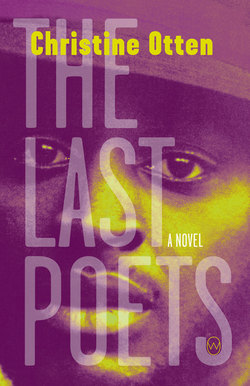Читать книгу The Last Poets - Christine Otten - Страница 19
На сайте Литреса книга снята с продажи.
Оглавление-
AKRON, OHIO, SEPTEMBER 2001
Barbara Jean Fuller
‘Sonny and I knew each other from the Palace on Howard Street. He used to perform there sometimes with a pickup band. He never played loud, it was more lazy and melodious. He had a beautiful voice. “Little Harlem”, that’s what they called Howard Street, because there were so many clubs and theaters. The Palace, and dance places like the Army, East Market Gardens. Duke Ellington, Ella Fitzgerald, the Count Basie Orchestra, and Billy Eckstine, they all came to the Palace. Sometimes the big bands also played at the East Market Gardens, because it was better for dancing. At the Palace you had to sit in seats. Howard Street was a nice street in those days. The rubber shop was booming and Akron was well off.
One evening I was sitting in the Palace, up close to the stage. I saw Sonny looking at me while he was playing. He was a little older than me, eighteen or nineteen. A handsome guy. At a certain point he got up and walked over with his saxophone. He kept on playing, his eyes glued to me the whole time. I could see the smile on his lips. Back then he just played the sax. The trumpet came later.
My father worked at Goodyear. Thirty-six years he worked there. He came from Macon, Georgia. My mother was from Plantersville, Alabama. We lived on Hickory Street, across from a farm where they had stables. For a few cents you could ride one of their horses down the street. On Fridays my brothers played polo. I was the ninth child, and after me there were three more. I don’t know much about my family. There’s a street in Akron named after my grandfather, George Washington Fuller. He was an overseer at a cotton plantation in Georgia and came north with a few slaves. He married my grandmother Martha, who had done housekeeping for the plantation owners. She came from Czechoslovakia. That’s why some of my children are so light-skinned. I remember my father telling us that he never liked his mother taking him to school. He was ashamed of her because she was white.
Sonny and I got married when I was expecting Larry. I was fifteen. That’s when I met Sonny’s family. We moved to Detroit because Sonny could get a job there in the Ford factory. On weekends he played in clubs on Hastings Street. We had it good. But one day at work he nearly fell into a melting furnace, y’know, this crucible thing where they melted steel. I don’t know exactly what happened, but from that day on Sonny refused to go to the factory. We went back to Akron, moved in with his parents. Jerome was still a baby.
Life at the Hulings was so different than what I was used to. I don’t know what it was with Elizabeth Huling; she was very introverted. Maybe things happened in Alabama that we don’t know about. That must be it. She never wanted him to play music. It was like she just couldn’t allow him to enjoy anything, allow him to be good at anything. She was always yelling at him. “Quit it with that music,” she’d say, “you’ll never be a musician. Get a job.”
His father was a well-educated man. He came from the same town in Georgia as Elijah Muhammed from the Nation of Islam. He talked about him a lot. He wasn’t a Muslim, but occasionally he went to the Nation’s meetings in Chicago on Saturday. He was no match for Elizabeth.
I think there was something not right in Sonny’s head. He never worked anywhere for more than a few days. Later, on North Street, the court had put a restraining order on him. Couldn’t come anywhere near the house. Actually Sonny was a good guy, but he had problems. He drank. I don’t know for sure.’
